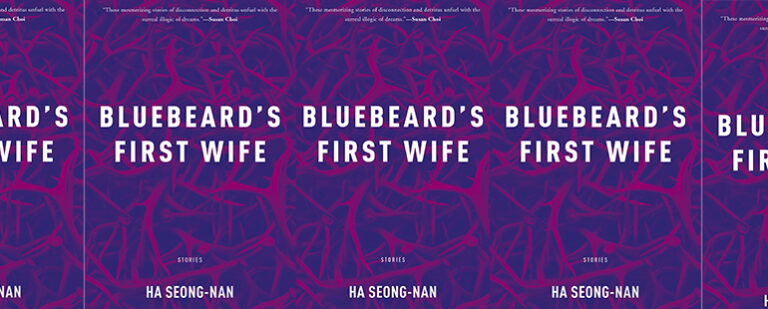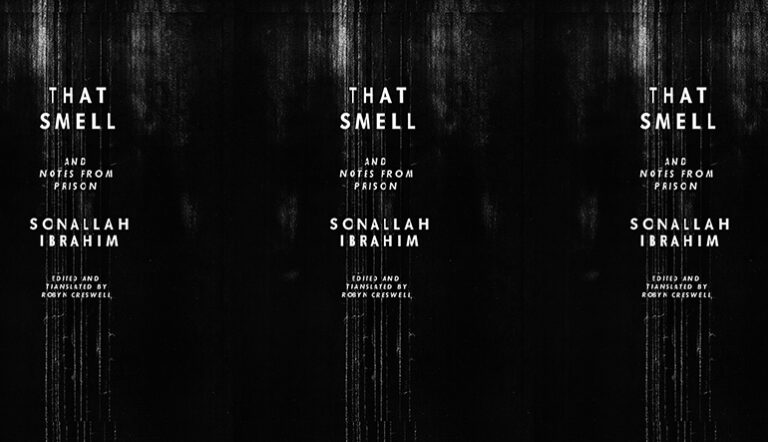Visible Worlds : An Interview With Invisible Publishing’s Leigh Nash
 Originally founded by Robbie MacGregor, Megan Fildes and Nic Boshart, Invisible Publishing released its first fiction titles in Spring 2007, and “has come to include works of graphic fiction and non-fiction, pop culture biographies, experimental poetry, and prose.” Recent highlights have included fiction by Michelle Winters, Andrew Hood and Elizabeth de Mariaffi, as well as poetry collections by Michael e. Casteels and Zoe Whittall.
Originally founded by Robbie MacGregor, Megan Fildes and Nic Boshart, Invisible Publishing released its first fiction titles in Spring 2007, and “has come to include works of graphic fiction and non-fiction, pop culture biographies, experimental poetry, and prose.” Recent highlights have included fiction by Michelle Winters, Andrew Hood and Elizabeth de Mariaffi, as well as poetry collections by Michael e. Casteels and Zoe Whittall.
Invisible publisher Leigh Nash holds an MFA in creative writing, is a co-founder/editor/publisher (with Andrew Faulkner) of the chapbook press The Emergency Response Unit, was an executive member of the Scream Literary Festival and a member of the Meet the Presses Collective. Formerly the managing editor at Coach House Books, she joined the Invisible Publishing board in 2015. She is currently the treasurer for Canadian Women in the Literary Arts and sits on the boards of eBound Canada and the Association of Canadian Publishers. Her work has appeared in various print and online literary journals. The poetry title Goodbye, Ukulele (Mansfield Press, 2011) is her first book.
rob mclennan: What first prompted you to take over Invisible Publishing?
Leigh Nash: It was more of a conversation: the press needed someone willing and able to step into a full-time publisher role. All of the board members who started and ran Invisible prior to my coming on board have full-time jobs elsewhere, and publishing had been a labour of love. I left my job as managing editor at Coach House Books in early 2014, and I was working a number of part-time jobs—bookkeeper, tourism-plan designer, and sled-dog festival coordinator—and really missed making books. Starting a publishing company is one of those big things I always thought I might want to do, except that it’s so expensive; that’s one of the reasons Andrew Faulkner and I started a chapbook press, The Emergency Response Unit. That seemed more manageable (HA!). So when Robbie got in touch about wanting to hand over Invisible Publishing’s reins, it seemed like a dream come true.
RM: As you suggested, you came to Invisible with a good amount of experience, from your time at Mansfield Press and Coach House, and the work you’ve done through The Emergency Response Unit. How do you feel all of that work prepared you for Invisible? Were there any parts you weren’t prepared for?
LN: I think it’s impossible to be completely prepared for anything in publishing. It seems like there’s always a curveball that makes you question what to do next. In a way, that’s why I like the work: there’s always an opportunity to learn something new. And every press is run so differently; at Coach House, for example, I never had to send around requests for printer quotes and price out jobs, because everything was done in house. So that’s been a learning curve. There is wonderful autonomy in running your own press, in that we don’t have staff to support, so we can probably take more chances on books that are worth publishing but have less commercial appeal. The flip side of that is that we don’t have staff, so all of the day-to-day work—hauling orders to the post office, fixing the website when WordPress unexpectedly upgrades and breaks it, reading submissions, responding to the mountains of email—lands on me. I’m lucky to have super-supportive board members in Megan Fildes, Invisible’s excellent designer, and Robbie MacGregor to turn to for design and business help. But for the most part, the greatest learning curve has been in time management. There are just never enough hours in the day!
RM: What has been the biggest surprise in the shift from working for a small press to running a small press?
LN: The biggest shift has been in the responsibility. Not that I didn’t feel responsible for the work I did at other presses, but with Invisible I really have to own everything I do. There’s no one for me to answer to, and there’s a lot of weight in that responsibility: weight to do right by authors, by Invisible’s backlist and board. I’ve learned that decision fatigue is a real thing. Publishing is hard work and there are always a number of balls a publisher is juggling—manuscripts to read, grants to write, emails to answer, editing, more reading, volunteer work—but my favourite thing still about small press publishing is that every day is astonishingly different.
The best parts aren’t that different from the work I got to do for other small presses, though: I get to be involved in every step of the process of magically transforming a book from a Word file into a physical object people buy and read and (hopefully) keep. I also get to have fun: we can do things like add a tearaway scorecard in the back of a baseball essay collection, make up playlists to go along with our Bibliophonic books, and undertake elaborate 12 Days of Christmas-style sales that result in very few actual sales but make for good promo.
RM: What was the process of taking the editorial reins at Invisible, and how do you feel your editorial mandate shifts what Invisible had produced prior to your arrival? How easy is it to make your own mark on a publishing house while acknowledging what had come before?
LN: The whole transition process with Invisible has been relatively painless, editorial included. When I started, there were two books in the pipeline for Fall 2015: Lucas Crawford’s Sideshow Concessions (which I edited) and Teri Vlassopolous’s Escape Plans, so I had the opportunity to ease into an editorial role while learning all of the other publishing ropes. Invisible’s practice has always been to match authors and their projects with the internal or external editor who’s the best fit for the work, and we’ll continue to do so going forward.
In terms of editorial mandate, I’m not sure it’s shifted too much at this point. I owned a number of Invisible books when I came on board because I already liked the press’s aesthetics, so I see it as more of an expansion of the list both in terms of number of books published and material. The Utility of Boredom: Baseball Essays may have seemed like a left turn, but Invisible already had a couple of excellent essay collections under its belt on sex (Hot, Wet, and Shaking) and food (Food and Trembling), so sport isn’t quite the departure it seems to be. I’m excited to grow the poetry list. And fiction with strong stories, themes and voices has always been an Invisible mainstay, so I’m happy to continue publishing short fiction collections and novels that cover that ground.
We intentionally publish a small number of books each year (between 4-7) so that each of our titles is a lead title; care and attention and author involvement in the design and promotion process are a few of the advantages we can offer to our authors over larger publishing houses. I do find it tough to balance the things I’d like to publish more of (books by women, diverse stories and authors, challenging work) with what I receive through our submissions. One of the big drawbacks of being a small operation is that it feels like there is never enough time to do all the work of bringing books into the world and reaching out to the potential authors who might not submit books on their own, but who have voices worth hearing. I’ve lost out on a couple of manuscripts with loads of potential this year because I can’t read them fast enough. So there’s room for improvement, which is always a good thing.
RM: This might be an impossible question, but how do you see Invisible in relation to Canadian publishing as a whole? What do you see as the role of Invisible in the wider landscape?
LN: That’s totally an impossible question, but I’ll give it a go! I was just lamenting this morning to the bookstore staff here at Books & Company (our office is upstairs) that there are so many books being published all the time and it’s impossible to keep up with them all. And that staffer sagely reminded me that’s a good thing: it means that books exist for every kind of reader.
We’re small, but intentionally so. Good design is also at the forefront of what we do: we want readers to judge our books by their covers. We’ve got style and substance.
We’ve often described ourselves as a ‘farm team’ for presses like House of Anansi and Coach House, and I’m comfortable being in that space. We try to make the best of our limited resources and don’t always have the money to compete with the bigger houses, but what we can offer is good support for first-time book authors and authors with projects that might not find homes elsewhere—we’re publishing Andrew Kaufman’s first non-magical-realism novel next spring, for example. And we do have authors who have returned to publish subsequent projects with us, so we’re doing something right to keep them happy!
In terms of the wider publishing landscape, I personally admire the books/work done by Dorothy, a publishing project, Two Dollar Radio, and Octopus Books (for poetry). I just learned about a gorgeous Quebec publisher, Les éditions de ta mère, that has an aesthetic similar to ours and I can’t wait to check out their books.
Book publishing is so different from other art forms because it is inherently a commercial enterprise. We’re producing physical goods; we want large numbers of people to engage with the work we’re putting out into the world. The kinds of paperback books we make are meant to be consumed. I think small press continues to fill an important role worldwide, as well as in Canada, and it’s my hope that Invisible contributes to this in even a small way, by supporting Canadian writers to tell the stories that are important to them and to their readers.
RM: What are some of the titles and/or authors, whether current or forthcoming, that you’ve brought into the fold since you took over the press?
LN: The first book I acquired was a collection of baseball essays from Andrew Forbes, whose story collection, What You Need, was one of the first books I worked on for Invisible in Spring 2015. The Utility of Boredom was so much fun to work on, and I’m still really proud of the tearaway scorecard we included in the back of the print edition. I’ve had missteps; I wanted to reissue Canadian Wonder Tales under a new Throwback imprint, but as a board we decided to pull the plug on that project due to its ultimate insensitivity to Indigenous culture. We really do want to be allies to all writers and readers. So most of my acquisitions have been in fiction and poetry, though we do have a few Bibliophonic (our music series) projects in the pipeline, too. We’ve published a number of first-time authors in 2015-16, and that’s been really exciting. And lots of good debut novels, especially: Brent van Staalduinen’s Saints, Unexpected (Spring 2016), Michelle Winters’ I Am a Truck (Fall 2016), and Jeremy Hanson-Finger’s upcoming Death and the Intern (Spring 2017).
RM: Has there been any attempts on your part to connect the work you do at Invisible with the work you’ve done at The Emergency Response Unit? Do you see the two projects as extensions of each other, or are they entirely separate?
LN: We’ve been toying with the idea of vertical integration, but the two will stay separate projects for now. Our vision for TERU is pretty similar to Invisible’s, so there is some overlap in terms of the kinds of writing we publish. Less so on the design front—TERU books are decidedly handmade and we plan to keep them that way. Andrew [Faulkner, TERU co-founder] and I like the informality—we like having the space to play, to make books by hand, to do limited runs without having to meet certain professional standards. We did publish the prologue to Jeremy Hanson-Finger’s forthcoming novel Death and the Intern as a chapbook this fall, and I’m sure there will be more future collaborations, but we think there’s still the space for both TERU and Invisible to coexist as complementary, but separate, projects.
RM: How has your work with Invisible shifted, if at all, your consideration of your own writing? How difficult is it to include your writing self in your days in publishing?
LN: I’ve been working in publishing for long enough that I view the writing and publishing sides of the equation as two totally separate things. I like to be busy and take on projects (both inside and outside of publishing), and I’m a slow writer, so I feel like balancing my creative work and my day job would be tough no matter what industry I worked in. I like to do too many things! What has shifted for me is a stronger feeling that the work I submit for publication needs to be of a really high calibre; I want to be sure that every poem I write contributes something new to the conversation. I do feel now that I might not write fiction again, or not for a very long time, anyway. I’ve discovered that I really enjoy editing fiction more than I think I ever liked writing it. But I still consider myself a poet and am working towards another collection.


